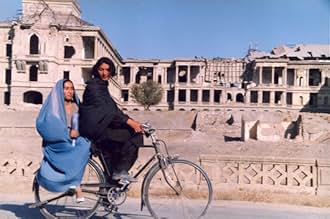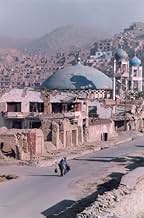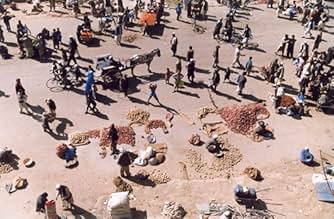In "At Five in the Afternoon", we follow the fortunes of a young woman in Afghanistan and her family. Nogreh is caught between two worlds. On the one hand, she attends a school where the teacher encourages girls to become doctors, engineers and even President. At the same time, Nogreh must wait until she steps out of her father's home before she lifts the veil of her burka and trades flat-soled shoes for high heels.
Nogreh is a very idealistic and ambitious young woman who emulates Benazir Bhutto of Pakistan and dreams of being President of her own country some day. Yet she has been kept in a state of childlike naivety and ignorance about politics at home and abroad, due to the teachings of the Koran, Shariah (Islamic law) and the Taliban.
It is exciting to hear the young girls debate the status of women in their country. But the film is also sympathetic and understanding toward the old Afghanistan, symbolized by Nogreh's father. He bewails that "Blasphemy has overrun the city" and the world, as he knew it, has ceased to exist. To add pathos to the situation, he feels he can confide his feelings only to a dumb animal -- his donkey, who "knows nothing but hay".
The film's title echoes a recurring verse from Federico Garcia Lorca's poem, "Lament for Ignacio Sanchez Mejia", about the goring of a bullfighter. Like Lorca's poem, "At Five in the Afternoon" is clouded over by a somber atmosphere of tragedy, death and despair. Yet the film remains remarkable for its astonishingly hopeful -- and indeed radical and revolutionary -- vision of hope for Afghanistan and indeed all of the Arab world.





















